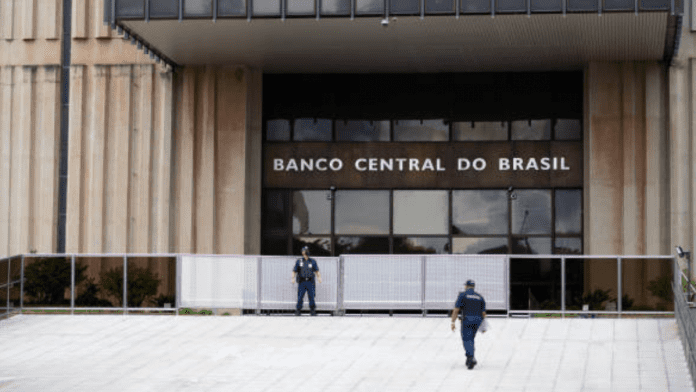News in brief:
– Brazil’s central bank cuts the benchmark interest rate by 0.5% points to 11.25%, marking the fifth consecutive reduction.
– The monetary policy committee signals a commitment to further cut 0.5% points in upcoming months, emphasising a focus on using interest rates to control inflation.
In a unanimous decision, the Monetary Policy Committee (Copom) of the Brazilian Central Bank opted for a fifth consecutive interest rate cut, reducing the benchmark Selic rate by 0.5% points to 11.25% per annum.
Copom’s statement reveals a commitment to maintaining a steady reduction, projecting another 0.5% point cut in the upcoming months. Central Bank Head Roberto Campos Neto clarified during a press statement that these reductions are anticipated at least until May, emphasising a concerted effort to sustain a contractionary monetary policy.
While the committee remains united in its expectation of continued reductions, the decision to halt the rate cuts hinges on the “longer-term” economic outlook. Neto’s statement suggests a cautious approach, emphasising the importance of aligning future actions with a comprehensive economic assessment.
The Selic rate plays a pivotal role in the Central Bank’s strategy to manage official inflation, monitored by the Broad National Consumer Price Index (IPCA). In 2023, the indicator recorded 4.62%, with fluctuations in the first and second halves of the year.
Ending below the 4.75% inflation target ceiling in the previous year, the IPCA for 2024 is targeted between 1.5 and 4.5 by the National Monetary Council (CMN), underscoring the central bank’s commitment to balancing economic growth with inflation control.
With lower interest rates, Brazilian food producers could increase their economic activities with more financing, which is typical when interest rate reduces. As an agriculturally dependent economy, with 29% of its gross domestic product (GDP) linked to the agricultural sector, farmers are likely in a jubiliatory mood after this news.
It is also a welcome relief for food producers who stare down the negative impacts of the El Nino phenomenon on the country’s major crops âsoybeans and corn.



